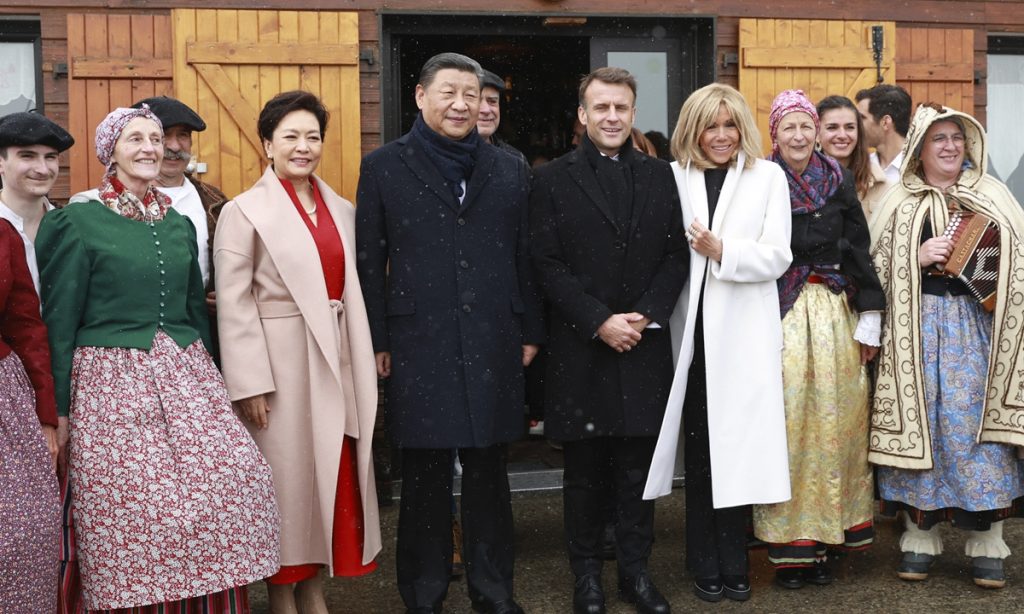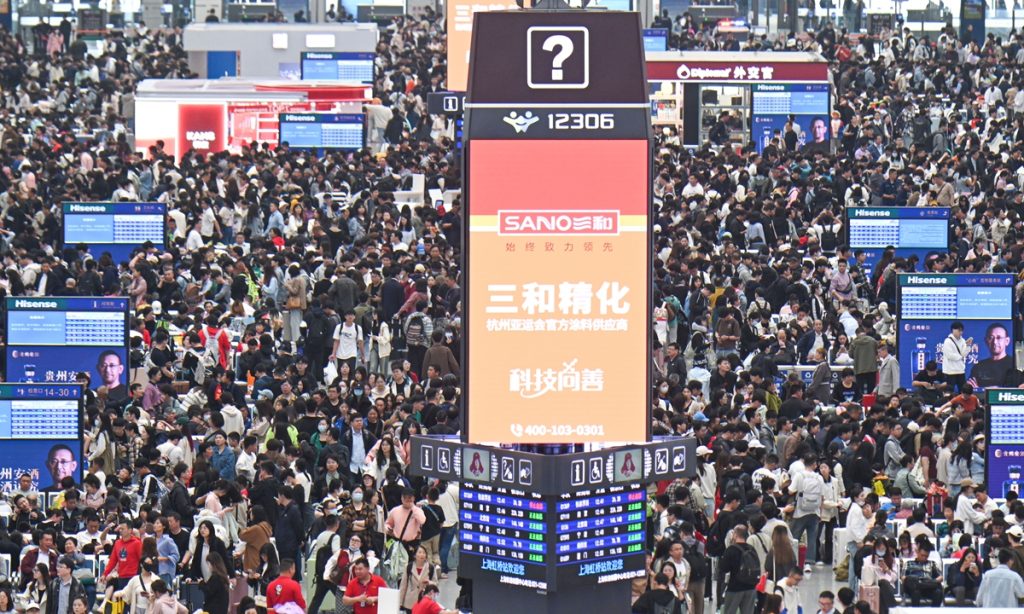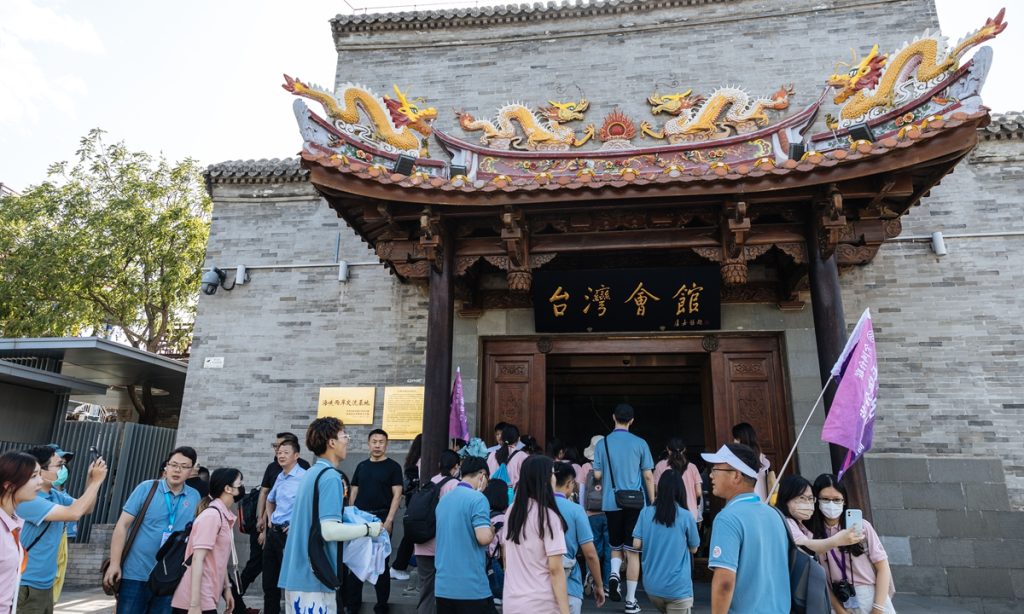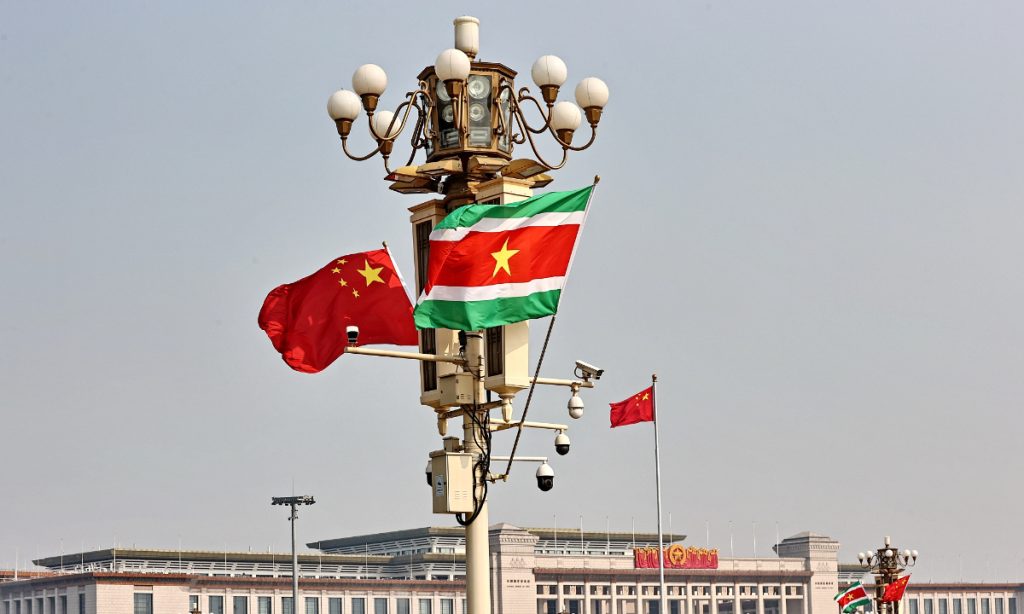Russia celebrates Victory Day despite shadows of terror and conflict
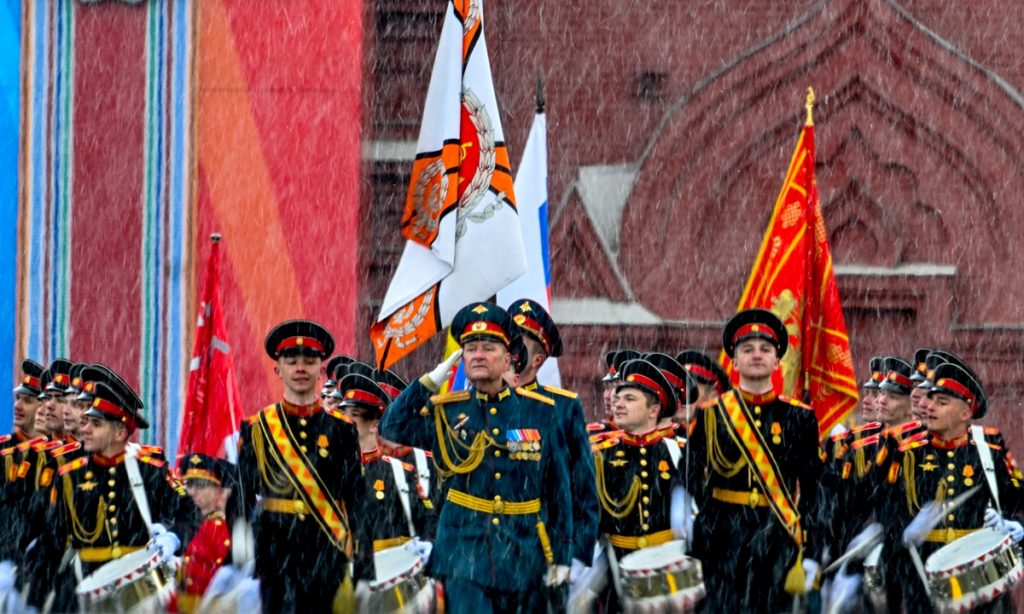
Parades, concerts and celebrations, as well as countless crowds of cheering people filled the streets across Moscow on Thursday, as Russia commemorates the annual Victory Day, marking the 79th anniversary of its victory over Nazi Germany in World War II.
Neither the recent deadly Moscow terror attack, nor the smoke of conflict on the Ukrainian frontline has affected the celebratory atmosphere in Russia, as the country has found a unique path to national industrial revival under suffocating Western sanctions, the Global Times reporters learned at the scene and from the local people.
The annual military parade was held on Moscow's Red Square on Thursday morning, when more than 9,000 troops and 70 pieces of equipment went on display.
Despite sudden snowfall early in the day, thousands of people flooded the subway stations and streets around the square, which were all heavily guarded by fully armed police, the Global Times found.
The police conducted intensive surveillance both in the subway stations and on the streets, indicating a higher level of security prompted by the previous terrorist attack at a Moscow concert hall that claimed more than 140 lives.
"Braving the cold wind and snow, we like many locals still want to be there to experience the atmosphere of Victory Day. Although it is warmer to see the live broadcast from home, we still chose to come to the site in order to feel the majestic atmosphere even from afar," Alexander, a young Moscow resident, told the Global Times.
Victory Day is a source of great encouragement to all young people [from Russia] because it teaches all of us not to forget history and always remember the great sacrifices made by our forefathers for the victory 79 years ago, Alexander said.
Other cities across Russia also held ceremonies and celebrations. Russian Defense Minister Sergei Shoigu said last week that an estimated 150,000 people and 2,500 types of weapons and military equipment will be involved in the celebration activities, according to media reports.
Russian President Vladimir Putin, who just started his fifth term as the country's head on Tuesday, as well as leaders of countries such as Belarus, Kazakhstan, Kyrgyzstan, Tajikistan, Turkmenistan, Uzbekistan, Cuba, Guinea-Bissau and Laos watched the parade at the scene.
Ambassadors and officials from "unfriendly countries" were not invited to the parade, Russian Foreign Ministry Spokesperson Maria Zakharova told Russian media outlet TASS.
Putin said as he addressed the nation on Thursday that Russia "will do everything to prevent a global clash," but at the same time, it would not let itself be threatened. "Our strategic forces are always in a state of combat readiness," Putin said.
Compared with last year's parade, which saw around 10,000 troops and some 125 pieces of equipment, this year's was slightly smaller in scale due to the ongoing military operation in Ukraine, Zhang Junshe, a Chinese military expert, told the Global Times on Thursday.
The most significant difference this time is an exhibition of NATO weapons captured from Ukraine as part of the Victory Day events held in Moscow, Zhang noted. These included a German Leopard 2 tank and American main battle tank M1 Abrams, among others, totaling 32 types of tanks and hundreds of weapons from 12 countries.
"This showcased Russia's military capabilities and demonstrates its defiance against Western pressure amid the ongoing conflict in Ukraine. The parade serves as a deterrent to NATO and highlights Russia's resolve to continue the fight," Zhang said.
Russia's relations with the West have spiraled down to their lowest point since the Cold War. Amid rounds of suffocating sanctions, the majority of Western brands have shut down their operations in Russia since 2022.
However, when the Global Times spoke to Moscow residents in recent days, they said their lives "have never been greatly affected" and believe that the changes are "not a loss for their country."
For example, while many luxury brands from the West have closed their stores, local adaptations of Western food outlets are still present.
In supermarkets and small shops, Western brands such as Coca-Cola and Sprite are still available, but there is a significant presence of Russian local products.
"I used to love buying Italian fashion brands. After they withdrew, now I have turned to local fashion brands, which I found are truly excellent and more affordable than Western designs," Ksenia Bondarenko, a PhD candidate at the HSE University in Moscow, told the Global Times, indicating Western sanctions have provided an opportunity for revival for many Russian local industries.
"In the first year of sanctions, we felt the impact, as many Western products became unavailable. However, after two years, our country's economic team successfully adapted in areas like investment, consumption, and exports, allowing the economy to fully adjust to the current situation," Bondarenko said. "Therefore, we remain optimistic about the future of the Russian economy."
